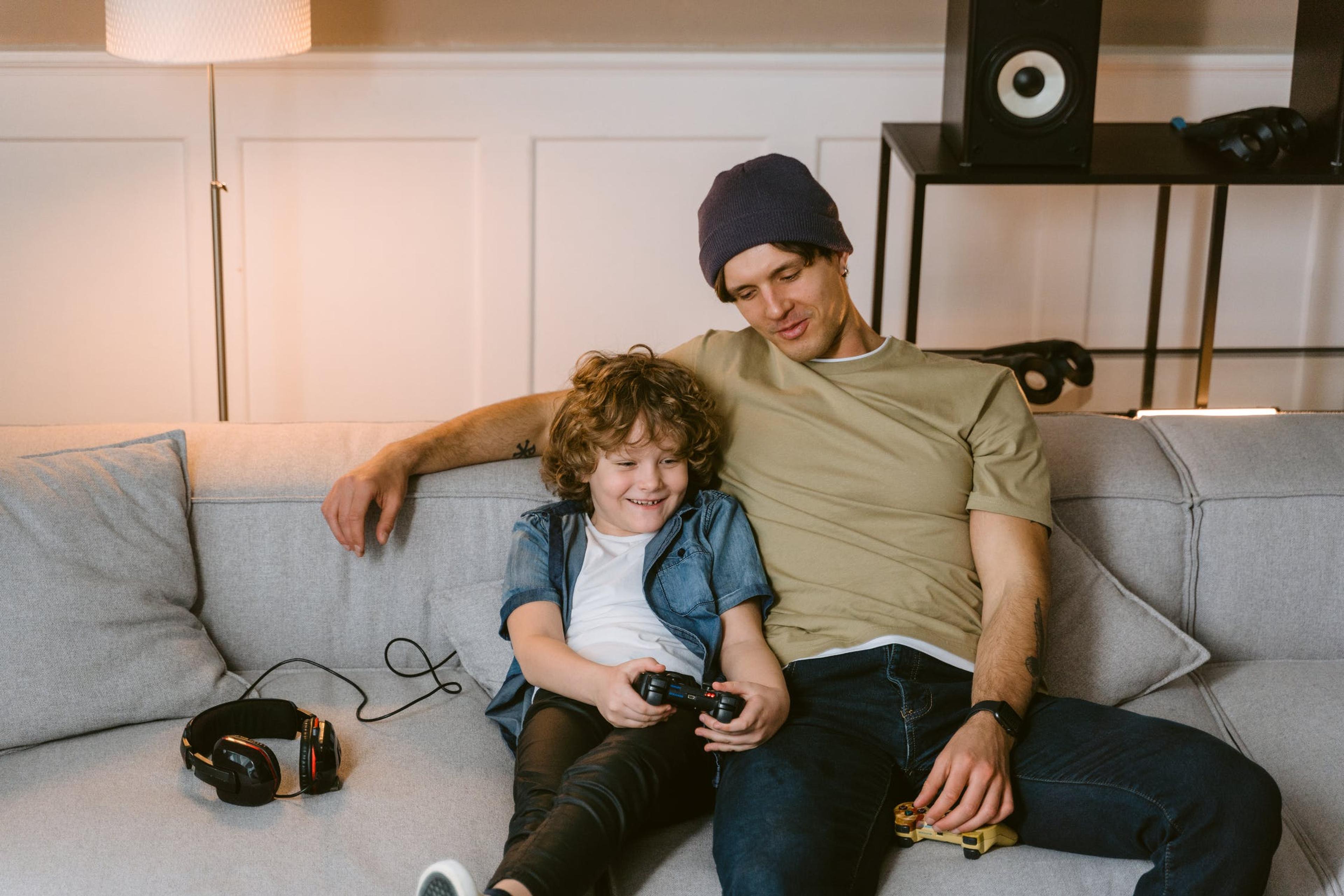Facts and statistics about eating disorders in men and boys
- One third of all people reporting eating disorder behaviors are men or boys, including approximately a quarter of those with anorexia and bulimia, half of those with binge eating disorder, and a majority of those with ARFID.¹
- Eating disorders may present differently in men and boys, with a focus on muscularity rather than weight loss.²
- Men and boys represent 25% of individuals with anorexia and face a higher risk of dying. This is in part because they’re often diagnosed later—many people mistakenly assume men and boys don’t have eating disorders.³
- Men with eating disorders have a later onset of illness than women, generally later in their teenage years as opposed to adolescence or early-mid teenage years.⁴
- Men who were bullied in childhood often develop disordered eating and engage in compensatory exercise.⁵

Because there’s so much misinformation and stigma around eating disorders in men and boys, those struggling can feel particularly isolated and unable to reach out for help. That means concerned loved ones may need to take a more proactive role in initiating frank conversations. It’s important to approach these conversations from a place of curiosity rather than accusation, and to hear whatever your loved one has to say without judgment or criticism.
It can also be important to help your loved one find social support that lets them know they’re not alone. This might mean a support group for men and boys with eating disorders, a male peer in recovery, or online communities.
You can also help support them by challenging your own internal beliefs about eating disorders and gender. Be aware of the implicit biases you may have, and when you see biases elsewhere—on TV, in social media, in conversation—call them out. Your words and actions will not only raise awareness about eating disorders in men and boys, but also show your loved one that you see and validate their experience.
There is some research that suggests eating disorders may present differently in men and boys compared to how they present in women and girls:
- Men and boys with eating disorders may show less concern for their weight and body size.
- Men and boys with eating disorders may be less likely to strive for thinness, but rather for being lean and muscular.
- Men tend to develop eating disorders later in life than women do, typically in the later teenage years.
- Men are less likely to report out-of-control binge eating.
However, it is important to note that these differences do not apply to every man or boy with an eating disorder.
Men and boys account for about one-third of those with eating disorders, a significant proportion that may be higher given how many men and boys go undiagnosed and untreated. Plus, men are nearly as likely as women to have disordered eating habits that don’t meet criteria for an eating disorder diagnosis but still negatively affect their health and life.
While there has been some improvement in awareness of eating disorders in boys and men, there is still a lack of understanding of how eating disorders might show up in this population. Some of the eating disorder symptoms more common in boys and men may also easily hide in plain sight. For example, boys and men may be more likely to engage in "bulking and cutting" behaviors, which may be considered normal or even praised in our society.
There is also the reality of shame and stigma. Because eating disorders are so often viewed as diseases that only occur in girls and women, men and boys who are struggling might feel ashamed or embarrassed about their problem. They may even be unaware that they could have an eating disorder. And because our culture tends to teach men and boys to hide their emotions, these feelings often remain buried.
Another barrier is that there’s simply a lack of proper eating disorder care for men and boys in the healthcare space. Many healthcare providers remain unaware of how common eating disorders are among men and boys, and many treatment centers cater specifically to a population of girls and women.
How Equip supports men and boys with eating disorders

- Sim, Leslie. Our Eating Disorders Blind Spot: Sex and Ethnic/Racial Disparities in Help-Seeking for Eating Disorders. Mayo Clinic Proceedings. VOLUME 94, ISSUE 8, P1398-1400, AUGUST 2019
- Social and economic cost of eating disorders in the United States of America.” Report for the Strategic Training Initiative for the Prevention of Eating Disorders and the Academy for Eating Disorders, June 2020
- Becker, Anne E et al. “Ethnicity and differential access to care for eating disorder symptoms.” The International journal of eating disorders vol. 33,2 (2003): 205-12. doi:10.1002/eat.10129
- Goeree, Michelle Sovinsky, Ham, John C., & Iorio, Daniela. (2011). Race, Social Class, and Bulimia Nervosa. IZA Discussion Paper No. 5823.
- Robinson, Thomas N. et al. Ethnicity and body dissatisfaction: Are Hispanic and Asian girls at increased risk for eating disorders?, Journal of Adolescent Health, Volume 19, Issue 6, 1996, Pages 384-393, ISSN 1054-139X, https://doi.org/10.1016/S1054-139X(96)00087-0.
- Striegel-Moore, R H et al. “Recurrent binge eating in black American women.” Archives of family medicine vol. 9,1 (2000): 83-7. doi:10.1001/archfami.9.1.83
- Akoury, Liya M. et al. “Disordered Eating in Asian American Women: Sociocultural and Culture-Specific Predictors.” Front. Psychol., 04 September 2019 Sec. Eating Behavior Volume 10 - 2019 | https://doi.org/10.3389/fpsyg.2019.01950

